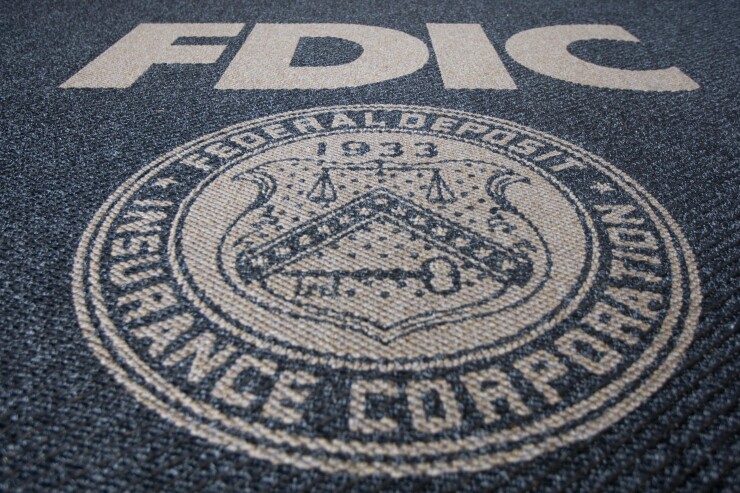WASHINGTON — Payday lenders have settled their lawsuit with two banking agencies over allegations that regulators improperly forced banks to terminate account relationships as part of the Obama administration program known as Operation Choke Point.
The lawsuit by Advance America and Cash Advance Centers, Inc. accused the Federal Deposit Insurance Corp. and Office of the Comptroller of the Currency of pursuing a
The payday lenders agreed to drop the suit five years after they initially brought the litigation, according to a federal court documents filed this week. Their allegations had included claims that certain FDIC employees had gone too far in discouraging banks to work with private businesses.
“We uncovered how some FDIC leaders and officials executed a campaign motivated by personal scorn for our industry, contempt for our millions of customers, and blatant disregard for due process," said Jessica Rustin, Advance America’s chief legal officer, in a press release. "This settlement will help to prevent this disenfranchisement from happening again — to our business or any other legal, regulated business.”

As part of the settlement, the FDIC issued a statement Wednesday summarizing how it determines when to recommend a bank cut off a deposit account. The agency also sent a letter to the plaintiffs' lawyers acknowledging "that certain employees acted in a manner inconsistent with FDIC policies with respect to payday lenders in what has been generically described as 'Operation Choke Point,' and that this conduct created misperceptions about the FDIC’s policies."
"Regulatory threats, undue pressure, coercion, and intimidation designed to restrict access to financial services for lawful businesses have no place at the FDIC," the agency said in the letter signed by Floyd Robinson, a deputy general counsel in the FDIC's legal division.
However, the agency stressed that neither the statement nor the letter represented a change in FDIC policy. The FDIC's statement noted that the agency will not recommend an account closure solely because of reputational risk posed by any particular customer relationship, can recommend a bank terminate an account if the institution is not properly managing risk, and that the FDIC will neither encourage nor discourage any particular customer relationship, among other things.
"The FDIC will conduct additional training of its examination workforce on these policies by the end of 2019 to ensure that its examiners adhere to the highest standards of conduct and respect the rule of law," Robinson wrote.
The plaintiffs also dismissed any claims against the OCC. The agency stated Thursday that it had made no concessions in exchange for the dismissal.
"This resolution of the case confirms what the OCC has long told the U.S. District Court and the Congress: namely, that the agency did not participate in 'Operation Choke Point' or in any purported conspiracy to force banks to terminate the bank accounts of plaintiffs or of other payday lenders," the OCC said in a statement.
Yet critics of the payday lending industry maintain that Operation Choke Point’s purpose was to “investigate unlawful behavior” by payday lenders and other sectors, and charge that the Trump administration has effectively stopped monitoring for such behavior.
“The fact that the payday lending industry spent so much time and energy opposing such an idea should speak volumes about how they operate and what kind of behavior they engage in,” said Derek Martin, the director of Allied Progress, in a statement.





